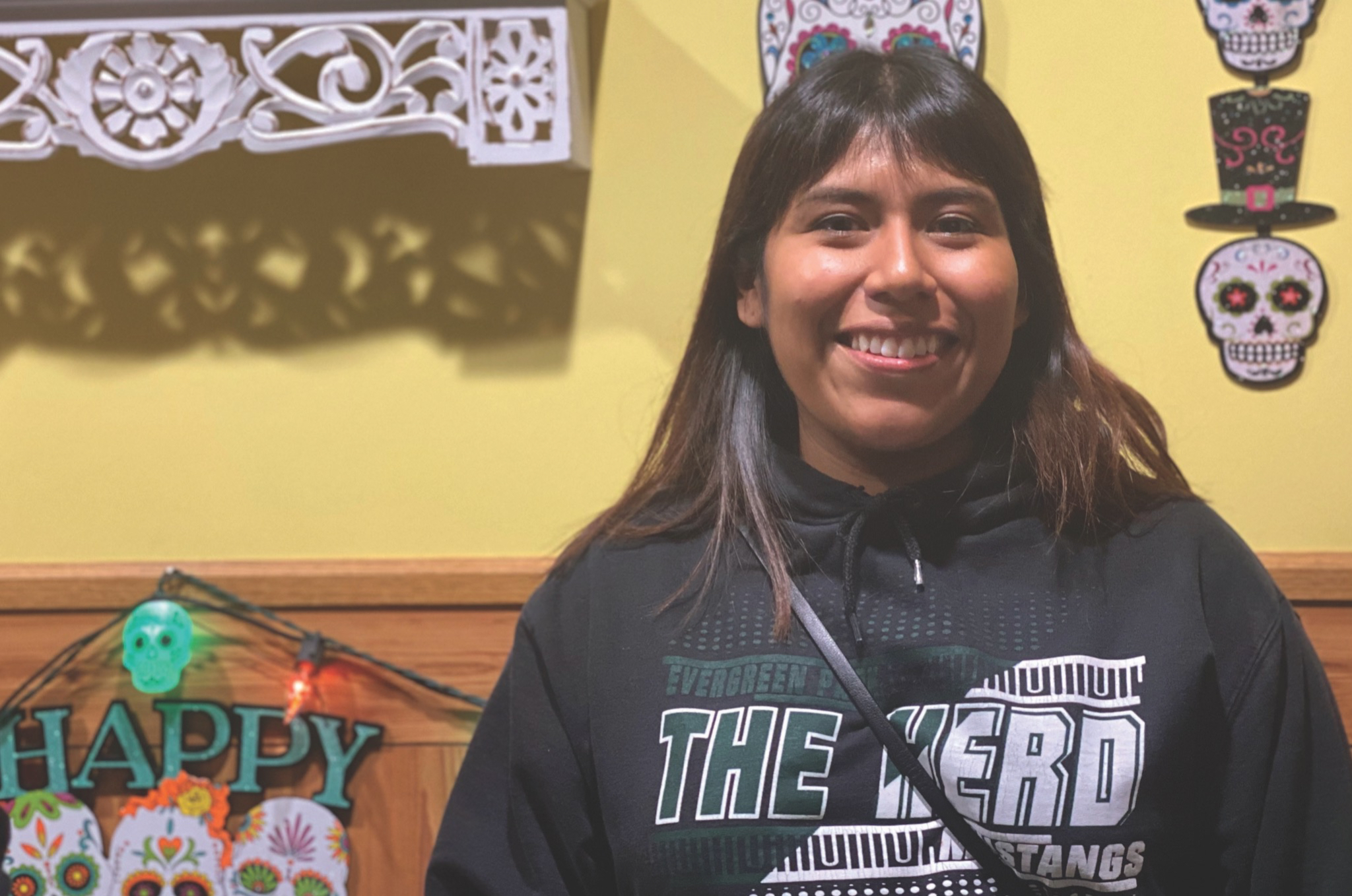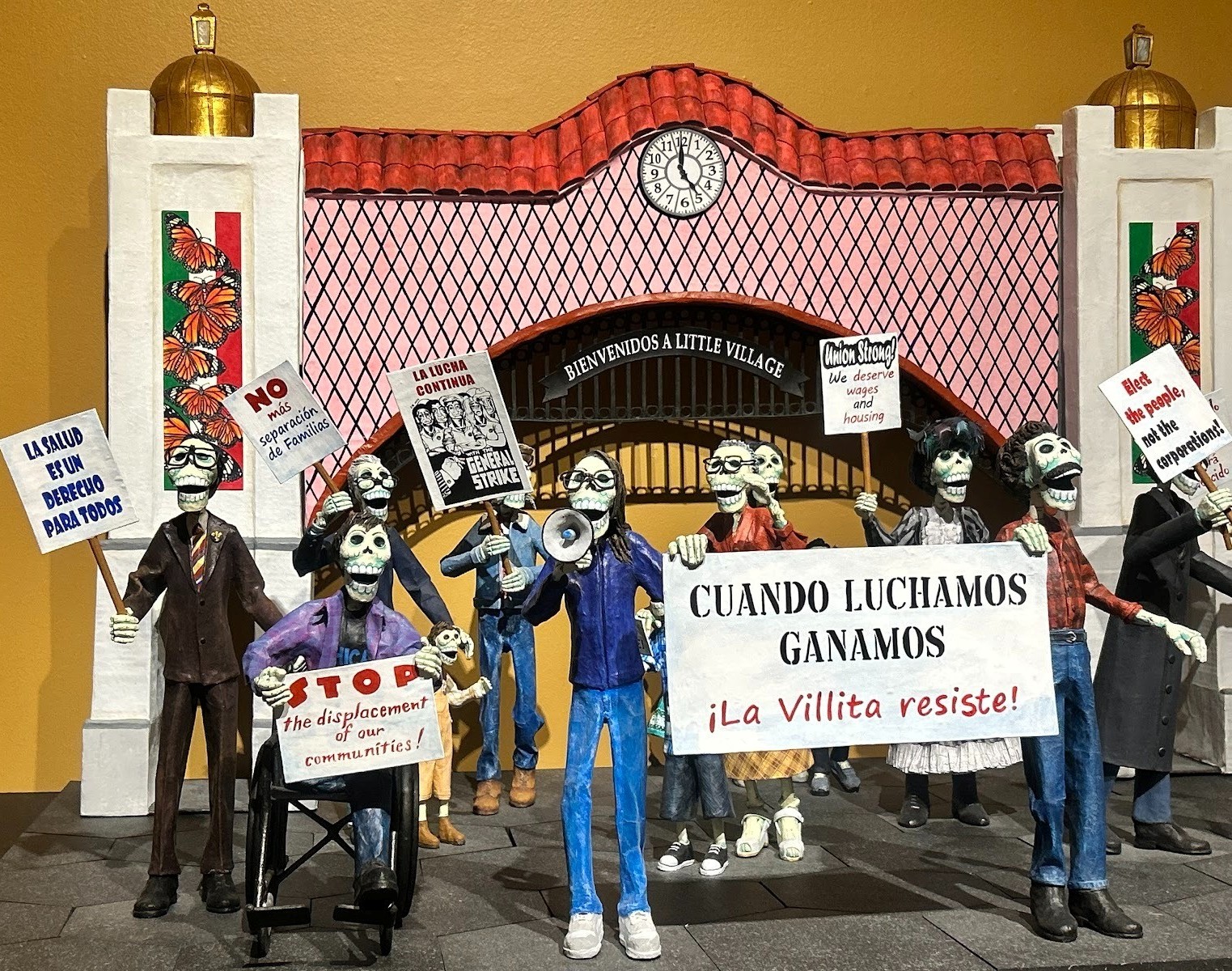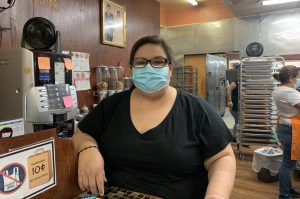CHICAGO BORN AND raised, Melissa Magaña is a 29-year-old Latina who lives in Brighton Park. Her parents are both from Mexico; her mother from Puebla and her father from Michoacán. Magaña says that race has always been a confusing because, “I am not white, physically, but I still have to mark it off on paper when filling out documents.” A 2016 Columbia College graduate, Magaña currently works as an office administrator but has dreams to start her own clothing business.
What do you think of the term Latinx to identify people of Latin American or Spanish background?
I get why people use the term because of Latino and Latina. It’s very gender based, and I know nowadays we have they/them pronouns. So, it makes sense to be inclusive.
Do you feel like Latinx is just an excuse for corporations to lump all Latino cultures together?
Yes, I do, because, and like I said earlier, now that people identify as more than just, she/her and he/him, corporations want to avoid upsetting consumers so they use Latinx as the correct term that people should be using.
Has your experience as a Latinx person isolated you to the way you grew up, or have you been able to branch out culturally?
Yes, I think I’ve been able to branch out culturally. Growing up in a Latino family you kind of grew up with those gender roles, but I think in our generation within our age range we’ve been able to expand our thoughts and beliefs. To understand that there’s more to this than just what I’ve grown up with.
As a U.S. born, does it bother you to be labeled?
Growing up and being brown you’re just labeled as Mexican, but then getting older, you realize “Oh, but I was born here in America so really I’m American,” but sometimes it does get frustrating, like you lose your identity growing up. I have to be American because what I grew up with, but I want to keep in touch with my culture and I want to be identified as Mexican. So, I think it’s more for me the American press that pushes labels, but I want to keep my roots.
“I want to keep in touch with my culture and I want to be identified as Mexican.”
Do you speak Spanish? How do you view Spanish as an attribute of your identity? How important is it?
Yes, I do speak Spanish. It’s super important because my parents only speak Spanish and growing up, I had to do a lot of things like their documents. I had to be able to translate, as a little kid and unfortunately, I had no choice but to translate for them. I had to because who else would translate for my parents?
Would you say your culture is “better” than someone else’s who is of a different ethnicity or country?
I wouldn’t say it’s better. I mean everybody has their culture and they’re very proud of it. So, I wouldn’t say that mine is better because everybody can say theirs is better. I’m proud to be Latina. I wouldn’t be anything else.
Does cultural appropriation bother you?
Yes, it does. Growing up, as a little brown girl I used to go to a predominantly white school, and they were always like, “Oh, look at you, you’re brown you’re like indigenous looking,” and then now as I’ve grown up, I see people who tan themselves and they want to be my skin color. So, it’s frustrating to see people who made fun of me and now they’re trying to become like me.
As a graduate, what was your experience like as a Latina at Columbia College?
It was very white and there were many kids that came from money or at least the ones that I had to go to class with. I became friends with some of them and sometimes they would try to involve me in their circle, but we were so different. Even culturally, sometimes I wanted to be like, hey, do you know, this or that, but they wouldn’t understand if I even told them.
But then I took a Latino Studies class and I loved being surrounded by other Latinos who understood me. The professor taught us that this is why you should be more open and not only go by what you’ve been taught since you were in elementary school. I thought to myself, “Where have these people been?” My whole four years. But it was probably because I didn’t branch out.
My experience was different because I had to go to work. I had to pay for my books and for tuition.





















Be First to Comment